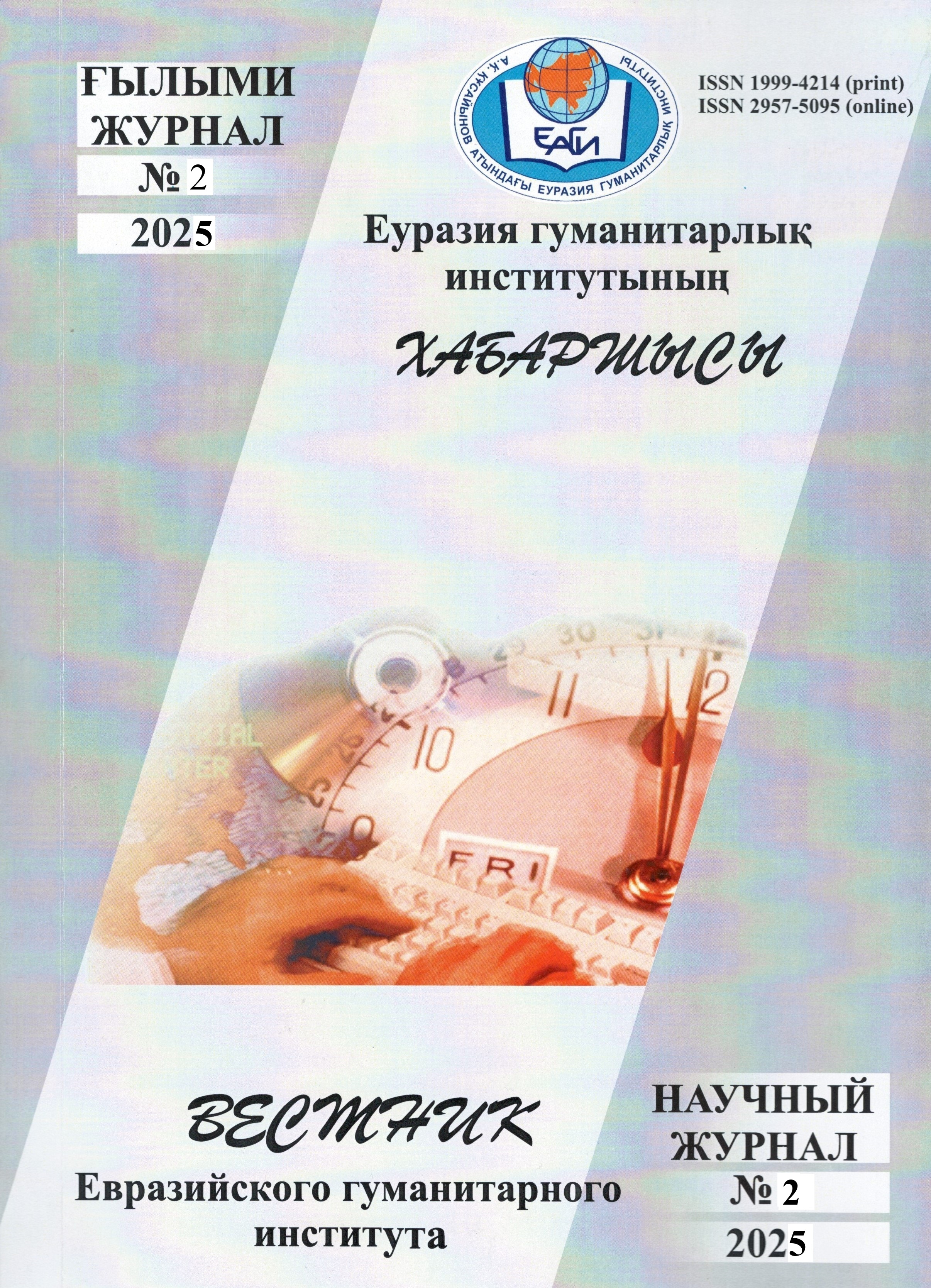*THE SEMANTICS OF THE ANTHROPONYM “NARGYZ”, ORTHOGRAPHIC NORMS, AND FREQUENCY OF USE
DOI:
https://doi.org/10.55808/1999-4214.2025-2.08Keywords:
Narğız, names, orthography, frequency of use, onomasticsAbstract
This article explores the meaning, origin, and spelling norms of the name "Narğız," as well as its frequency of use in Kazakhstan. The name "Narğız" belongs to the group of names related to the plant world and is based on the name of the flower narğızgul (dahlia). Several hypotheses about the origin and meaning of the name are proposed in the article, including a connection with warrior girls from the times of warfare and a version related to the Persian word "nargis," which means a flower. In terms of orthography, the spelling norm of the name aligns with the sound harmony law of the Kazakh language and historical language traditions. Additionally, according to statistics from Kazakhstan, the name "Narğız" is most commonly found among women aged 10 to 30. Currently, there is a noticeable decrease in its frequency, especially among girls under 28. The research results clarify the semantic and linguistic aspects of the name "Narğız" and show its frequency dynamics. The article also discusses the traditions of naming in the Kazakh language and adherence to spelling norms. The laws of national onomastics and the history of names play an important role. This study reflects thoughts on the changing traditions of naming and their adaptation to modern requirements. The historical meaning of names and their linguistic characteristics are an important part of national culture.


